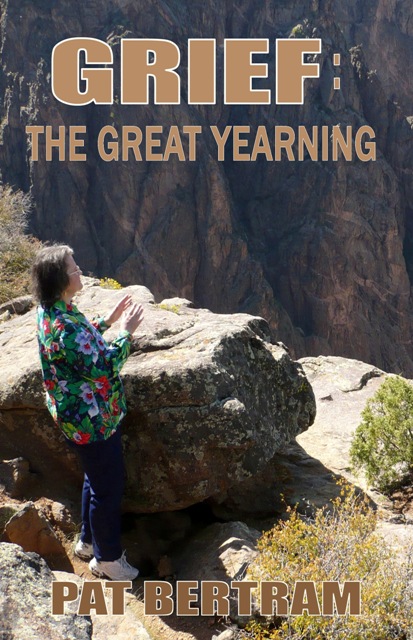 PREY ON PATMOS: Saint John wrote the apocalyptic Book of Revelation over 1900 years ago on Greece’s eastern Aegean island of Patmos. When a revered monk from Patmos’ thousand-year-old monastery is murdered in the town square during Easter Week, Chief Inspector Andreas Kaldis must find the killer before all hell breaks loose. His search takes him far away from Patmos to the pristine Aegean peninsula of Mount Athos where twenty monasteries sit guarding the secrets of Byzantium among a way of life virtually unchanged for more than 1500 years, and modern international intrigues threaten to destroy the heart of the Church in a matter of days.
PREY ON PATMOS: Saint John wrote the apocalyptic Book of Revelation over 1900 years ago on Greece’s eastern Aegean island of Patmos. When a revered monk from Patmos’ thousand-year-old monastery is murdered in the town square during Easter Week, Chief Inspector Andreas Kaldis must find the killer before all hell breaks loose. His search takes him far away from Patmos to the pristine Aegean peninsula of Mount Athos where twenty monasteries sit guarding the secrets of Byzantium among a way of life virtually unchanged for more than 1500 years, and modern international intrigues threaten to destroy the heart of the Church in a matter of days.
EXCERPT
There was an unnatural cadence to the man’s walk. Maybe it was the uneven stone lane. But he’d walked this path ten thousand times, though not so soon before first light. Still, he knew it well enough. He paused, as if to listen, then moved five paces and paused again. In the shadows outside the monastery’s wall, his black monk’s rasso was long enough to conceal his body and the short, flat-topped kalimafki his hair, but neither hid his snow-white beard. Perhaps he should have been looking as carefully as he listened, but it wouldn’t have mattered. The men stood quietly at the bottom of the path, just beyond where it opened into the town square. He could not see them.
***
Andreas had told Lila he’d be home early. Forget about it. Here he was yelling over the noise of a military helicopter commandeered by his boss, the minister of public order, to get Chief Inspector Andreas Kaldis, head of the Greek Police’s Special Crimes Division, and his assistant, detective Yianni Kouros, out of Athens and over to a northern Dodecanese island close to Turkey “before all hell breaks loose.”
“There’s no reason for him tossing this mess in our laps. No damn reason at all.”
Kouros shrugged. “I don’t know, Chief, maybe the minister thought a monk turning up murdered the Sunday before Easter in the middle of the town square on the Holy Island of Patmos qualified as a special crime?”
Andreas ignored him. They’d worked together long enough for him to let the younger man tease him, at least when they were alone. Besides, Kouros was right. Throat cut, everything but the monk’s crosses taken. Hard to imagine anyone who’d kill a monk being considerate enough to leave them behind.
The 200-mile flight east from Athens took a little more than forty minutes. They landed at a heliport next to a hilltop military installation. There was no airport on Patmos and lacking permission to land a helicopter, the only way to reach the island was by boat.
Patmos was a nine-mile-long, thirteen-square-mile, dark beige and green ribbon of fertile valleys, rocky hills, eclectic beaches, and crystal blue bays. Slightly more than half the size of New York City’s Manhattan, with 3,000 permanent residents, it was far less developed for tourism than the better known, western Aegean Greek islands of Mykonos and Santorini. Visitors came here for serenity and a slower paced, spiritual holiday, seeking enrichment for the soul rather than excitement for the body—or so the church liked to think.
The road from the heliport snaked south, down toward the port area known as skala, with its ubiquitous one-, two-, and occasional three-story buildings filled with tourist shops, restaurants, hotels, bars, and clubs facing east across the harborside road. The police car made its way through the port, turned right at the first road past the post office, and headed toward the mountain road leading to Patmos’ ancient chora, perhaps the most desired and beautiful village in all of Greece. During the summer, its quiet lanes and simple but elegant stone houses were home to members of Greece’s former royal family, current and past government leaders, and understated wealth and power from around the world.
Andreas sat behind the driver as the police car wound its way up to Chora along a two-mile band of road lined with eucalyptus. It was Andreas’ first time on the island, and like every other tourist, he couldn’t help but stare down toward the port. It was an extraordinary view: green fields and olive trees against a sapphire sea laced with muted brown-green islands running off to the horizon, a scene from antiquity.
The driver said, “Locals say this is the same view as he had when he wrote The Book.” He paused. “And right over there is where he did it.”
Andreas didn’t have to ask who he was. On Patmos there was only one he. They were almost halfway up the mountain and tourist buses were parked everywhere.
“The entrance to The Cave is over there.” The driver gestured with his head to the left. “You should see it if you have the chance.”
Andreas thought to remind the young cop that this was a murder investigation, not a sightseeing tour. But he let it pass. After all, this spot was hallowed ground to much of the world: the cave where Saint John wrote the Book of Revelation, the apocalyptic tale of the end of the world—or its beginning, depending on your point of view.
“Take a look at that.” It was Kouros pointing up the hill toward a monastery. It dominated the hilltop.
“That’s the Monastery of Saint John the Divine. It controls the island. What the monastery wants, it gets. What it doesn’t want, doesn’t happen,” said the driver.
Andreas looked up, wondering not for the first time, why me? Yes, theoretically his unit had jurisdiction over any crime in Greece considered serious enough to warrant special attention, a unique and feared position in a politically sensitive department, but for practical purposes there was no way he could keep up with all the serious, big-time crime threatening Athens, let alone the rest of Greece. Sometimes he wondered if that might have been the plan: give him too much to do to accomplish a single thing. If so, he’d sure as hell surprised more than a few high-profile bad guys now serving time.
***
 The Greek Press called Jeffrey Siger’s work “prophetic,” Eurocrime described him as a “very gifted American author…on a par with other American authors such as Joseph Wambaugh or Ed McBain,” and the City of San Francisco awarded him its Certificate of Honor citing that his “acclaimed books have not only explored modern Greek society and its ancient roots but have inspired political change in Greece.” Born in Pittsburgh, Jeffrey practiced law at a major Wall Street law firm and established his own New York City firm before giving it all up to live and write on the island of Mykonos.
The Greek Press called Jeffrey Siger’s work “prophetic,” Eurocrime described him as a “very gifted American author…on a par with other American authors such as Joseph Wambaugh or Ed McBain,” and the City of San Francisco awarded him its Certificate of Honor citing that his “acclaimed books have not only explored modern Greek society and its ancient roots but have inspired political change in Greece.” Born in Pittsburgh, Jeffrey practiced law at a major Wall Street law firm and established his own New York City firm before giving it all up to live and write on the island of Mykonos.
You can find out more about Jeff at his website http://www.jeffreysiger.com and his Murder is Everywhere blogsite, http://murderiseverywhere.blogspot.com/












December 6, 2011 at 12:22 pm
With my love for the book of Revelation, this one had to catch my eye.
December 19, 2011 at 10:36 am
Great !!!! All is great …..People please …..I hope you don’t really believe that Mr. Siger influenced or inspired the Greek people in anyway to With political change…
The people marching in the streets of the major cities do not know Jeffery Siger and they are inspired and pushed by broken promises and crooked politicians.
So before we make a hero out of someone who yes, wrote 3 very good books,let’s put things down and think before we say that a country was inspired by his author!!!!!!!!!!!!!!!!!!!
Maybe Mr Siger can inspire San Francisco with its politics and it’s economic situation and not a country where books used as inspiration and reference are dated thousands of years ago and written by the famous Authors then!!!!
I don’t have to name them as they come to you instantly when you thing of Democracy and philosophy and INSPIRATION.